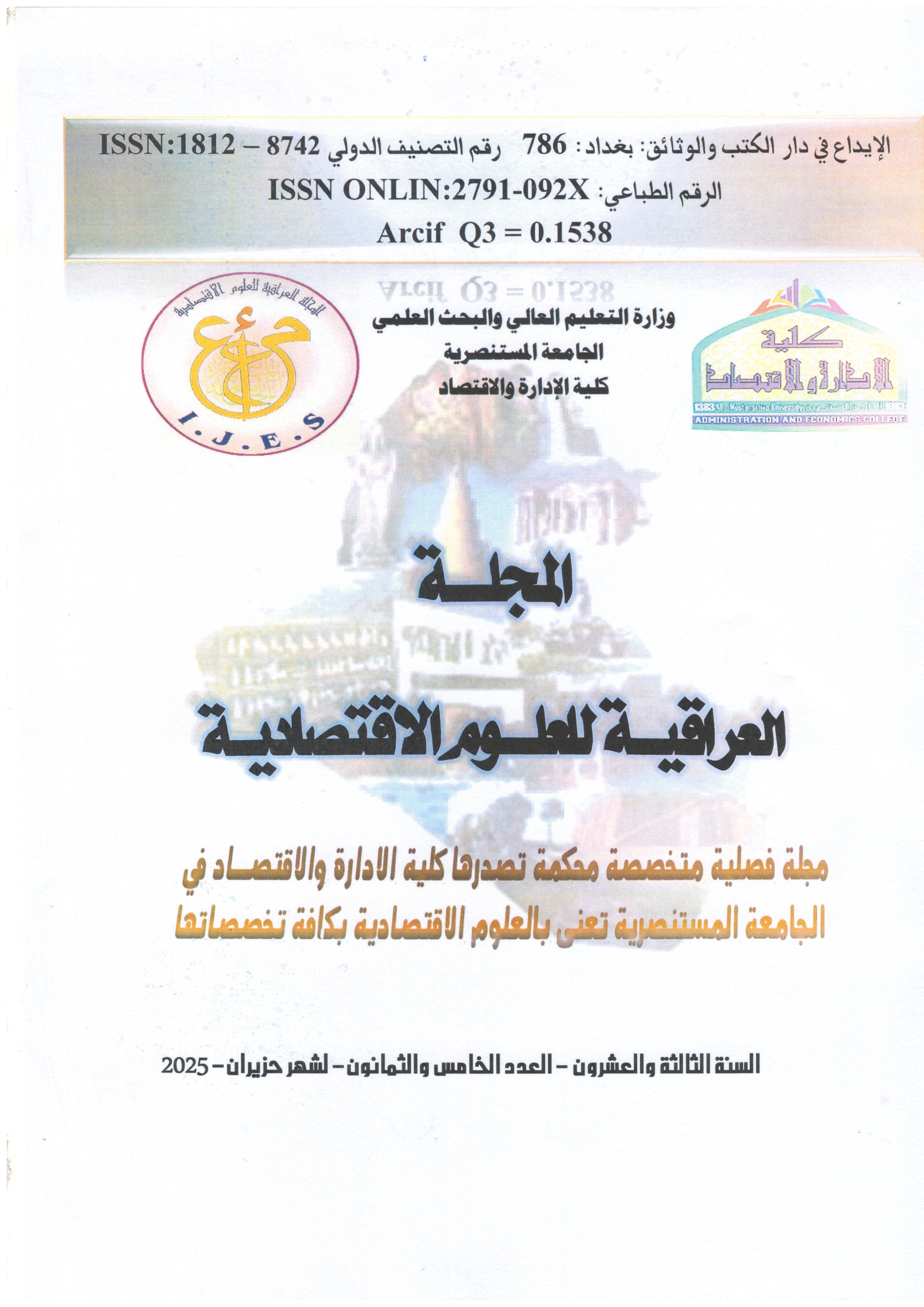"Measuring the Weak-Form Efficiency of the Iraqi Stock Exchange: An Empirical Application Using Historical Data"
DOI:
https://doi.org/10.31272/mwc4x519Keywords:
Efficiency - information efficiency - random step theory - circulation test - ARCH – GARCHAbstract
The role of investment in the national economy has always been emphasized in numerous articles. In this regard, in most developed and developing countries, the huge financial resources of the stock market are relied on for large and long-term investments. The stock exchange, which is the central core of capital markets, plays an important role in providing long-term financial funds for companies. In an efficient market, prices at any moment are a complete reflection of all available information. The discussion of capital market efficiency is one of the most important and controversial topics of the capital market in the last three decades in the financial literature. The weak form of efficiency is known as random step theory. If independence is observed between the variables of prices or returns, the random step hypothesis is accepted. In this research, by using the total price index of the Iraqi stock exchange during the period of 2016 to 2021, we examine the efficiency of the stock exchange in a weak form on a daily basis. In this method, first by using autocorrelation test and turnover test, autocorrelation between the past and present values of the return series of the price index of the Iraqi stock exchange at a weak level by examining the return of the total price index of the companies accepted in the stock exchange using ARCH, GARCH models. Garch-M, EGARCH and GJR were tested daily for the period 2016 to 2021. The results of this research showed that the Iraqi stock exchange does not work at a weak level.






